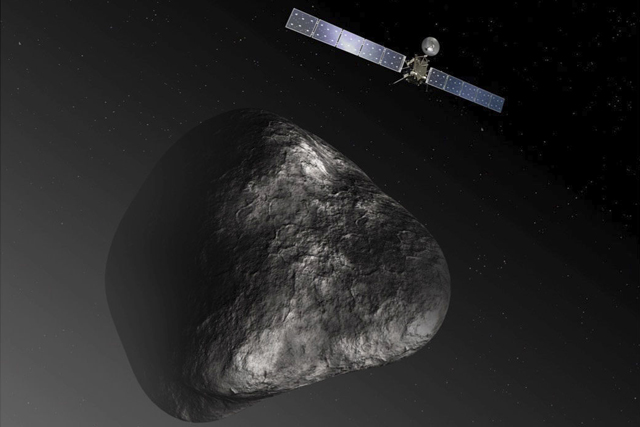
Rosetta, along with its lander module, Philae, set forth from earth in March 2004 and performed a number of gravity assists past both Earth and Mars on its decade-long flight plan. This sent it into an orbit that was close enough to that of comet 67P/Churyumov–Gerasimenko, that on-board engines could slow the craft down to a low relative velocity, allowing for it to begin orbiting the comet.
Although there were some difficulties with the Philae lander, much important data was recovered from the comet, including details about its composition and potential age. Since that date in 2014, Rosetta has been sending back images and more information on the comet, but as the Comet’s orbit carries it farther away from the sun, Rosetta’s solar panels are losing the ability to power its internal functions.
Related: A landslide may have caused this brilliant comet outburst captured by Rosetta
When it officially touches down on 67P, where it will remain until the end of the comet itself, Rosetta’s job will finally be done, more than 12 years after its original launch from Earth’s surface.
While it might be nice to imagine Rosetta coming back online when the comet’s 6.5 year orbit sends it heading back towards the sun, unfortunately the probe is not designed to withstand any sort of impact, so it will be very unlikely to function after its touchdown on 67P.
For those looking to watch as the scientists who have babysat Rosetta from afar for so many years finally pull the plug on its mission, there will be a live-stream this Friday, September 30. It is expected to take place around 7:30 a.m. ET, give or take 20 minutes (thanks Space.com), so get there early if you want to see the moment itself.



